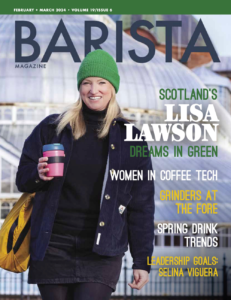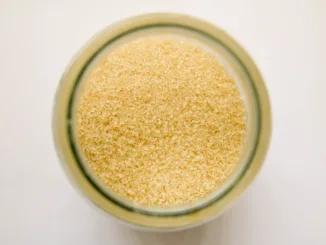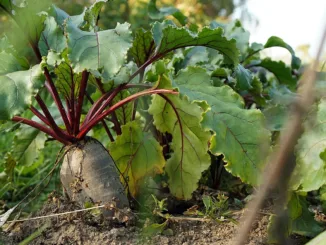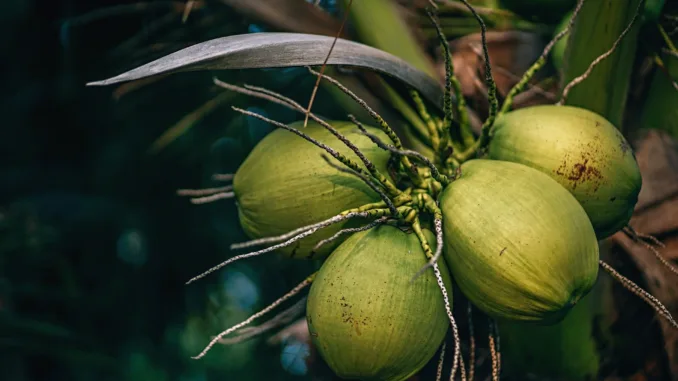
We continue our exploration of popular sweeteners by turning our sights to coconut sugar.
BY EMILY JOY MENESES
BARISTA MAGAZINE ONLINE
Featured photo sourced via Unsplash
Nowadays, it seems like everyone’s looking for an alternative to plain-old sugar. Whether it’s for health or for taste, cafés and home baristas alike are exploring different options: honey, maple, agave, and more. In this installment of “Know Your Sweeteners,“ we’re turning our attention to coconut sugar, which has gained attention in recent years for potentially being a more sustainable and health-friendly sweetener than table sugar.
Read on to learn more, and try out a coffee recipe!
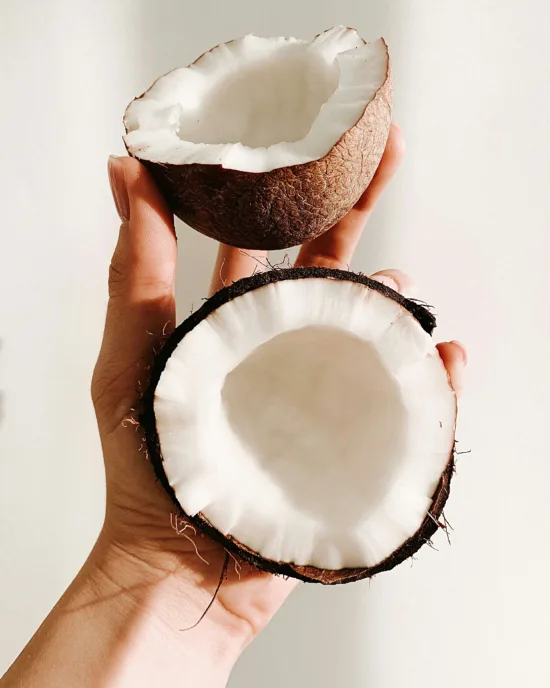
Making Coconut Sugar
As its name suggests, coconut sugar comes from the coconut—but not from the part of the plant that you’d think. It actually comes from the coconut flower blossom and the sap that the flower naturally produces.
When preparing to make sugar, coconut “tappers“ will place a tap in the flower and collect the sap. The sap is then heated in a large pan to produce sugar. Most of today’s coconut products come from Indonesia and the Philippines, with India and Brazil also being top producers.
Flavor Profile: How Does It Compare?
Sweet and dark with notes of caramel, butterscotch, and toffee, coconut sugar has a taste similar to brown sugar, which is essentially white granulated sugar coated with molasses. When replacing table sugar, a one-to-one ratio is recommended.
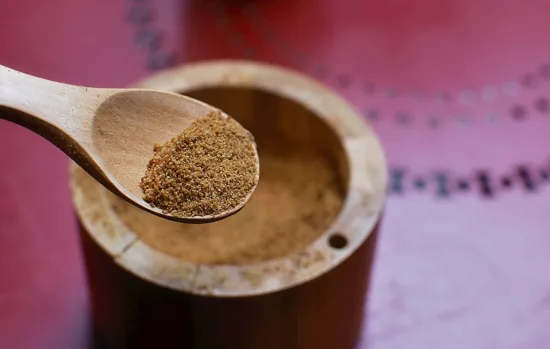
Compared to regular sugar made from sugarcane, coconut sugar is unrefined. It also contains antioxidants and trace amounts of minerals like calcium, iron, zinc, and potassium. Coconut sugar also has a lower glycemic index than table sugar; while table sugar has a glycemic index of about 60, coconut sugar has a GI of around 50-54. However, it’s important to note that while coconut sugar may be a slightly healthier alternative to table sugar, it’s still sugar—meaning that it should be consumed in moderation.
Ethical Sugar Production
Over the decades, the sugarcane industry has come under fire for a variety of reasons, with concerns being raised over how sustainable and ethical sugar farming and production is. Requiring less water in its production, coconut sugar is considered to be more sustainable than traditional sugar. In addition, coconut palms are capable of producing coconut sugar for up to 20 years, while the sugarcane plant requires being replanted annually.
Coconut sugar, which is traditionally produced by small farmers, is also being explored as a more ethical alternative to sugarcane, as the sugarcane industry has been historically riddled with human rights violations. Consuming coconut sugar that is organic and fair trade can help you further ensure that your product was sustainably and ethically produced.
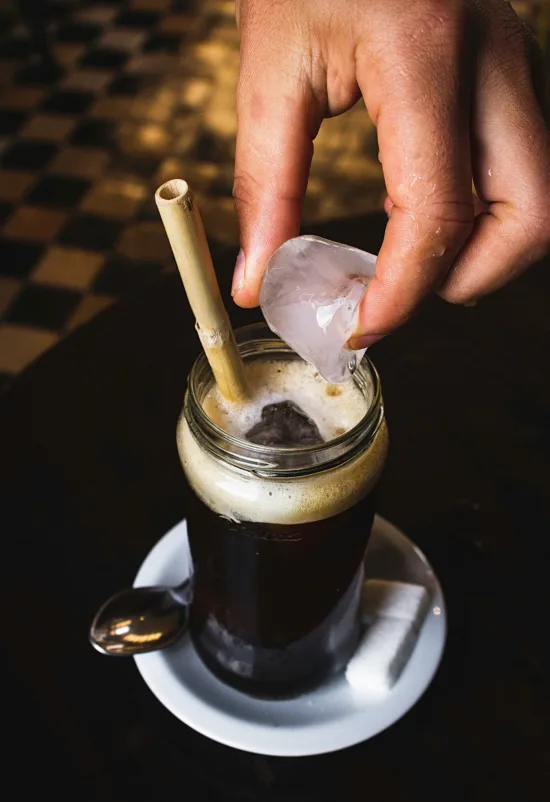
Recipe: Iced Coconut Water Americano with Coconut Sugar Cold Foam
Make use of both coconut water and coconut sugar with this refreshing recipe.
Ingredients: Coconut Water Americano
- 8 oz coconut water
- 2 shots of espresso
Ingredients: Coconut Sugar Cold Foam
- ¼ cup full-fat coconut milk
- 2 tbsp oat milk
- 1 tsp coconut sugar (adjust to taste)
- ½ tsp vanilla extract
- ¼ tsp salt
Make your iced Americano in a glass by mixing coconut water with two shots of espresso and adding ice, leaving some room in the top of the glass.
Place the ingredients for your coconut sugar cold foam in a separate bowl and whisk or froth until the mixture becomes light and foamy.
Top the Iced Coconut Water Americano with the cold foam and enjoy.
ABOUT THE AUTHOR
Emily Joy Meneses (she/they) is a writer and musician based in Los Angeles. Her hobbies include foraging, cortados, vintage synths, and connecting with her Filipino roots through music, art, food, and beverage.
Subscribe and More!
Out now: It’s the February + March 2024 issue of Barista Magazine! Read it for free with our digital edition. And for more than three years’ worth of issues, visit our digital edition archives here.
You can order a hard copy of the magazine through our online store here, or start a subscription for one year or two.

